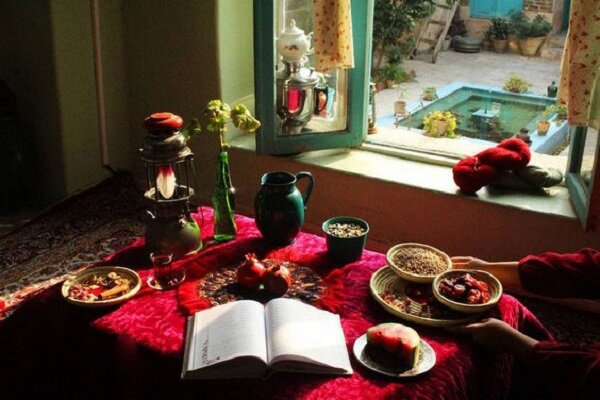image1
Shab-e-Yalda (Yalda Night), also known as Shab-e Chelleh, is one of the most ancient Persian festivals annually celebrated on December 21 by Iranians all around the world.
Yalda is a winter solstice celebration; it marks the end of autumn and the lengthiest night of the year. Since days get longer and nights shorter in winter, Persian celebrate the last night of autumn as the renewal of the sun and the victory of light over darkness.
On Shab-e-Yalda, people gather in groups of friends or families, usually at the home of grandparents or the elderly, to pass the longest night of the year happily by eating nuts and fruits, reading Hafiz poems, making good wishes, talking and laughing all together to give a warm welcome to winter, and a felicitous farewell to autumn.
Yalda means "birth", and Yalda night refers to the longest night of the year or winter solstice. Yalda or Chella was inscribed in 2022 on the Representative List of the Intangible Cultural Heritage of Humanity.
People on Yalda Night are usually served with fresh fruits and colourful Ajil (a mixture of dry fruits, seeds, and nuts) in floral bowls.
To persian, fruits are reminders of abundance in summer. Watermelon and pomegranates, as symbols of bounty, are the traditional fresh fruits of this night. It is believed that eating watermelon before the arrival of winter can immunize the body against illness.
Yalda night refers to a time between the sunset of autumnís last day (the 30th of Azar in the iranian And Afghanistan calendar equal to the 21st of December) and the sunrise of the first day of winter (the 1st of Dey in the Iranian calendar equal to the 22nd of December).
Yalda Night, both before and after Islam, has a special place in persian culture and has always been considered a motivation for gathering close and distant relatives. The festivities that take place on this night are an ancient tradition.











